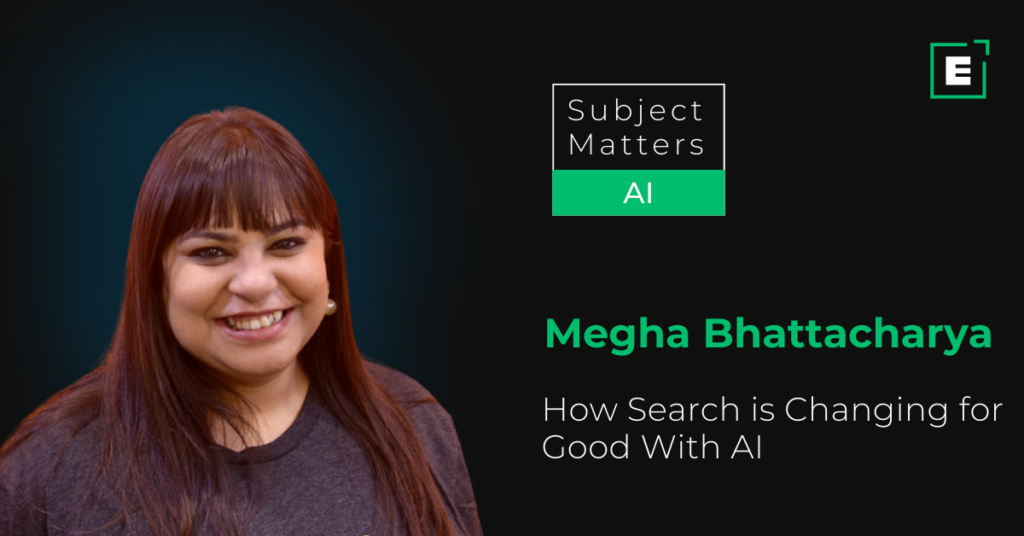How AI is Fundamentally Changing the Nature of Search

Search engines were born out of our insatiable hunger for self-actualization in Maslow’s hierarchy of needs. In pursuit of fulfilling one’s potential, being curious and actively seeking knowledge from the collective wisdom of society became important. When we started to digitalize that wisdom into tiny little pages of code and share it over the server, thus began the birth of the internet, the World Wide Web, and, subsequently, Search. If you are wondering why we are discussing rudimentary Search engines in the age of AI-powered search, we’ll get to it. First, let’s look at how Search evolved over the years.
The Evolution of Search
We went from the simple keyword-based search mechanism of Archie and W3Catalog to web crawling and full-text search with WebCrawler, and then Yahoo! Then came Google (called BackRub then), and the world of search changed overnight with PageRank. We witnessed the heroic rise of Search engine optimization and search engine marketing: the cash cow of Alphabet’s farm. In the last decade, we have seen social Search gaining popularity with social media platforms like Instagram and TikTok. While that’s still building a foothold, the next revolution in Search has already begun: AI-powered search.
Until OpenAI’s large language model (LLM) chatbot, ChatGPT, launched in November 2022, we would encounter Pattern Identifying AI (PAI) models a lot more in tools (think of software that helps with fraud detection, anomaly detection, and recommendation engines).
How AI-Powered Search is Different From Keyword Search
With ChatGPT, we welcomed a game-changing AI called Generative AI (GenAI), and that’s a whole new beast! LLMs are trained on huge amounts of text data and are able to generate new content based on that training data. And that changes Search completely, specifically in the following ways:
1. AI-Powered Search is More Inclusive: Search in More Ways Than Just Words
This is where our Search has helped us in the search for good. AI is starting to make Search a lot more accessible for people with disabilities. Combining the power of speech recognition and text-to-speech technologies with AI allows us to recognize images and find content in different languages, ultimately opening up the option of using Search engines with voice, sound, or image and multiple languages.
Cross-cultural searches alone broaden our horizons with more local context without the burden of language interpretation. That makes collaboration and information sharing easier and helps reduce biases in our research and our understanding of the world.
2. AI-Powered Search Has Shorter Search Journeys: Search with Natural Language Processing
Let’s take the example from Google’s keynote earlier this year. Remember the last time you planned a holiday? You searched for locations with cheap flights, then searched for places that are perfect for the weather for the prospective holiday dates. Now, need to find a spot that’s popular enough for activities with kids but not too popular that you end up with an overcrowded beach with no spot to grab that tan. You then searched for some good deals on hotels or Airbnbs and ended your research for the day by setting a price alert for the flights and the stay. You’ll then spend the next few weeks bombarded with retargeting ads everywhere you go and then end up booking everything a little last minute because all that research took so much time!
Now, with GenAI that Search would have been a lot shorter with a search prompt that combines all your required parameters in a natural language format. Something like “What are some good options for a week-long holiday in July that are kid-friendly, with a not-so-crowded beach.” The main difference is that we’ve used keywords to find relevant content all this while, but with GenAI, we Search multiple natural-sounding phrases instead of a string of short Searches because the AI is able to break down our prompt into small tasks, providing us with an efficient result with a much shorter Search journey.
3. AI-Powered Search Remembers: Searching Based on History and Contextual Data
We are well versed in the versatility that the use of cookies provides us. With AI, Search engines are able to use the crumbs of demographic information like location, language, and past Search history to grasp the deeper context of the user queries. Coupled with the power of GenAI, Search is now further being personalized to match your preferred style of communication, be it content type (like blogs, images, or reels) or style of language.
A huge portion of AI’s incredible power can be attributed to the self-learning mechanisms it often deploys, like machine learning algorithms. It is not entirely surprising how very similar machine learning is to our brains’ remembering to use our previously preferred choices to create pathways; machine learning, after all, is a neural network inspired by our favorite computer: our brain. That means AI-powered Search can also predict your next move and anticipate your needs, giving you a faster result but also showing you information that might be relevant to you but you wouldn’t know to go searching for.
AI-Powered Search Can Differentiate: Fact-Checking Search Results and Reducing Misinformation
This is where our older, familiar forms of AI like PAI come together to work hand in hand with GenAI in identifying which are Search results that are actual true sources of information versus which are AI-generated. This allows us to also crawl and fact check fraudulent information and reduce the spread of misinformation. Detecting dodgy, subpar websites, blocking bot-generated social profiles, investigating identity thefts, and identifying cyberbullying are some aspects of Search that will make the world a better place.
Will AI-Powered Search Replace Regular Search?

We have a long way to go before we start to trust AI-collated and generated information the same way we do with regular searches. But there’s no denying that it’s already well on its way to change Search. In fact, with the vast amounts of data that AI is guzzling and digesting every day, very soon, we’ll start to see the usage of AI in academia, research, and policy-making. This potential also extends to creating ethical frameworks for Search engines, setting security standards, and respecting user privacy. Perhaps AI is not just changing the Search for good, but it is also changing the Search for the good!
A study by ServiceNow and Pearson says that there will be a growth of 4.7 million tech jobs in India by 2027, owing to the rise of AI. Therefore, now is the time to upskill and reskill by pursuing AI and ML courses to build a future-proof career. There is a surge of AI and ML courses in India to train professionals. Choosing the right course from multiple AI and ML courses online requires setting goals and ensuring that the curriculum of such AI and ML courses aligns with your goals. Trending AI and ML courses teach fundamental concepts and practical use of tools and help professionals gain practical insights into the latest trends.
NOTE: The views expressed in this article are those of the author and not of Emeritus.






